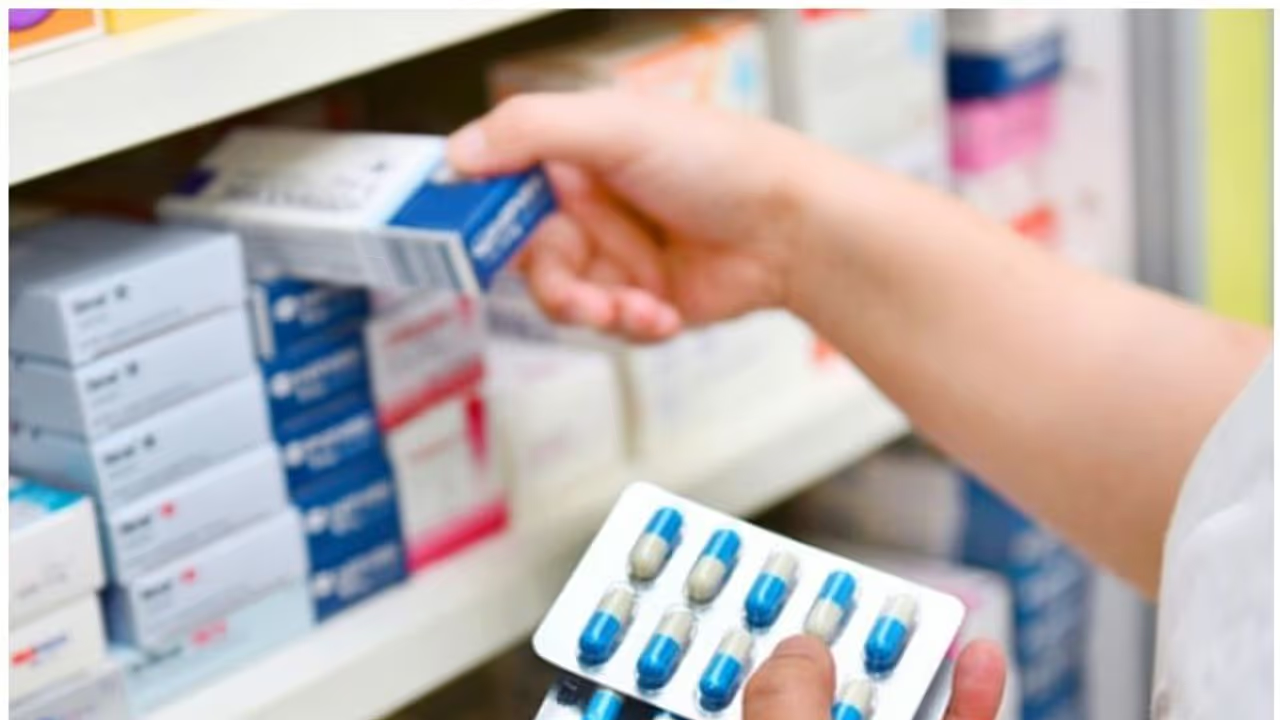The study also discovered that the most commonly used antibiotic formulation (7.6 per cent) in India during the year was azithromycin 500mg tablet, followed by cefixime 200 mg tablet (6.5 per cent). The data was collected from a panel of 9,000 stockists who sell products from approximately 5,000 pharmaceutical companies.
The Lancet Regional Health-Southeast Asia published a study stating that more than 47 per cent of antibiotic formulations used in India's private sector in 2019 were not approved by the central drug regulator.

The study also discovered that azithromycin 500mg tablet was the most commonly used antibiotic formulation (7.6 per cent) in India during the year, followed by cefixime 200 mg tablet (6.5 per cent).
The researchers from Boston University in the United States and the Public Health Foundation of India in New Delhi examined private sector antibiotic use, which accounts for 85-90 per cent of total consumption in India.
The information was gathered from a panel of 9,000 stockists who sell products from about 5,000 pharmaceutical companies.
However, these figures do not include drugs distributed through public facilities, which, according to studies and national health accounts, account for less than 1520 per cent of total drug sales in the country.
The researchers discovered a lower rate of antibiotic consumption than previous estimates but a very high relative consumption of broad-spectrum antibiotics, which act against a broad range of disease-causing bacteria.
According to the researchers, the total defined daily dose (DDD) consumed in 2019 was 5,071 million (10.4 DDD/1,000/day), which is the assumed average maintenance dose per day for a drug in adults.
According to the study, formulations on the national list of essential medicines (NLEM) contributed 49 per cent, fixed-dose combinations (FDC) 34 per cent, and unapproved formulations 47.1 per cent.
FDCs are drugs that combine two or more active ingredients in a single dosage form. The authors noted that "centrally unapproved formulations accounted for 47.1 per cent (2,408 million) of total DDDs."
They said, "The top three antibiotic classes among unapproved formulations were cephalosporins, macrolides, and penicillins."
Antibiotics in the Watch group accounted for 72.7 per cent of unapproved products, while combinations discouraged by the World Health Organization (WHO) accounted for 48.7 per cent of FDCs.
Broad-spectrum antibiotics with a high risk of resistance are being monitored and should only be used for specific indications.
The Consultant Physician & Diabetologist, Yashoda Hospitals Hyderabad, Dr Hari Kishan Boorugu, said, "In our country, we do not have proper surveillance systems monitoring antibiotic usage, and irrational antibiotic usage is rampant."
While talking to PTI, Boorugu said, "The problem exists on multiple levels, antibiotic use by patients without a prescription, irrational antibiotic use by quacks and even many qualified doctors."
The authors of the study noted in the journal that inappropriate antibiotic use is a significant driver of antibiotic resistance in India.
"Antibiotics availability, sales, and consumption in the country are complicated by large unrestricted over-the-counter sales of most antibiotics, manufacturing and marketing of many FDC, and overlap in regulatory powers between national and state-level agencies," they said.
The authors acknowledge that their study has some limitations, including that the dataset only includes private sector antibiotic sales and does not include antibiotics dispensed through the public system.
They also stated that because the data is collected at the stockist level, it does not differentiate between community and hospital use.
Furthermore, Booruge explained, "The prevalence of multidrug-resistant bacterial infection is high in many countries, including India, and irrational antibiotic use is a major driving factor."
"Unless we act now, we will soon find ourselves in a situation similar to the pre-antibiotic era, with no effective antibiotics for treating most bacterial infections," he added.
(With inputs from PTI)
Also Read: Nasal spray reduces Covid viral load by 94 per cent: Lancet study
Also Read: India prevented over 42 lakh Covid deaths in 2021 through vaccines: Lancet study
Also Read: India saw over 23.5 lakh deaths due to pollution, topped list in 2019: Lancet Study
